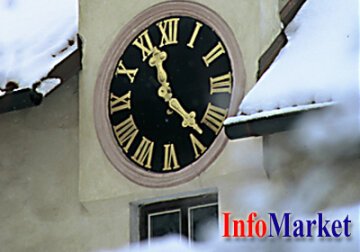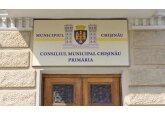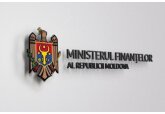
Expert-Grup mentioned the most important positive and negative socio-economic events and trends in 2022.
Expert-Grup, the independent think-tank, presented the main events of Moldova in 2022 and named the challenges our country will have to overcome in 2023. The experts mentioned as the first positive event for Moldova the acquisition of the status of candidate country to EU, which lifted the Moldovan-EU bilateral relations and the European integration agenda of Moldova to a higher quality level: our country is included in the European enlargement policy, which helps it categorically differentiate from the other Eastern Partnership members. The second event of the year was the increase in foreign financial support, which showed once again who are Moldova's true friends and supporters, and made it possible to diversify electricity purchases, compensations for vulnerable groups, financial support for companies, implementation of infrastructure projects and maintaining the stability of public finances. The third positive development for Moldova was the development of support mechanisms for vulnerable groups and companies in parallel with the consolidation of efforts to formalize the economy, which mitigated the negative shocks of this year. The experts included among the positive events of the year - the management of the refugee crisis, which once again confirmed the fact that Moldova is a truly European state, able to show solidarity and mobilize in the conditions of extremely limited resources and possibilities. Also among the highlights of the year, Moldova started to follow a genuine program of strengthening energy security for the first time. However, these positive changes took place against the background of negative trends and events. Thus, stagflation - economic recession combined with high inflation - was registered, which led to an increase in poverty and social inequality and a chronic budget deficit amid growing social liabilities, which should be one of the main challenges of 2023. Another negative trend of 2022 was the slow progress of systemic reforms, caused by numerous shocks, crises and emergencies that "took over" the government agenda (for example, energy crisis, war in Ukraine, inflation and drought). Combined with the limited capacity of state institutions, they prevented the allocation of time, energy, and resources for systemic reforms. Another reason, no less important, according to experts, has to do with the system's resistance to reforms and its unadaptability to democratic change through direct or indirect sabotage of change initiatives and/or hijacking of the reform program. Another negative trend of the year is a decrease in investment activity amid growing uncertainty and business costs. The main challenges of 2023 remain - they relate to the continuation of the war in Ukraine with direct and indirect consequences for Moldova (continued high level of uncertainty, risks of power cuts, intensification of missiles launched by Russia towards Ukraine, further disruption of trade with Ukraine, Russia and Belarus, continued high level of logistics costs for companies that depend on imports, etc.). Another challenge is the problematic execution of the state budget in the context of a difficult economic year and growing social obligations, given the planned high budget deficit and its unsustainable financing. The risk of electoral populism in the context of the 2023 local elections may also pose a problem for the progress of systemic reforms. Experts believe that there is also a risk of undermining economic potential due to emigration and stagnating investments, especially if the security situation in the region does not improve. In addition, the risk of a new wave of rising energy prices remains. //22.12.2022 - InfoMarket.







